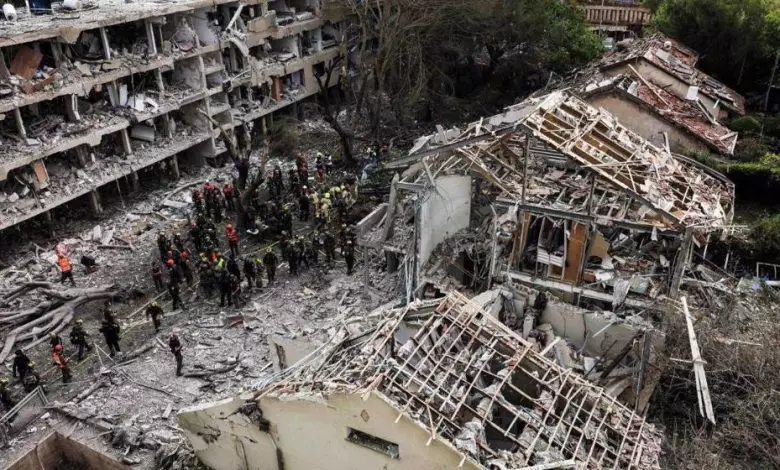Israeli Estimates Reveal War with Iran Could Cost $20 Billion
Significant military expenditure

Israel has reportedly incurred direct financial losses amounting to approximately $12 billion as a result of its 12-day military confrontation with Iran. According to Israeli media and economic assessments, the overall economic impact could escalate to as much as $20 billion.
The financial losses cover a broad spectrum, including military spending, damages from missile strikes, compensation to impacted individuals and businesses, as well as costs for infrastructure repairs.
Experts caution that the total cost could potentially escalate to $20 billion, taking into account both indirect economic repercussions and civilian compensation claims.
As reported by the Israeli publication Yedioth Ahronoth, the country’s treasury has reportedly incurred damages totaling 22 billion shekels, equivalent to approximately $6.46 billion.
The Israeli Defense Forces are now requesting an additional 40 billion shekels ($11.7 billion) to replenish their arsenal, acquire more interceptors and offensive weaponry, and sustain reserve units. This request follows previous pre-war financial appeals of 10 billion and subsequently 30 billion shekels.
Israel’s budget deficit is anticipated to surge to nearly 6 percent as the nation grapples with the financial demands of warfare, compounding the deficits accrued during the ongoing Gaza conflict.
As economic analysts predict at least a 0.2 percent deceleration, which could lead to a further decline in tax revenues, reports have surfaced estimating that Israel suffered $1.3 billion in losses from direct missile strikes attributed to Iran.
Significant increase in defense expenditures
According to a report by Israeli business daily Calcalist, the Israeli cabinet has allocated approximately $5 billion, equating to around $725 million per day, on both offensive efforts targeting Iran and defensive strategies aimed at intercepting missile and drone attacks by Tehran.
The anticipated expenditure on compensation is projected to exceed five billion shekels, equivalent to approximately $1.5 billion.
TheMarker reported on Monday that the physical damage resulting from Iranian missile attacks has already exceeded 5 billion shekels, equivalent to approximately $1.5 billion.
Economic analysts had warned that extending the conflict might have threatened to push Israel’s already struggling economy towards the verge of collapse.
According to property tax assessments, an estimated 15,000 Israeli settlers were compelled to vacate their residences as a result of damage incurred from Iranian retaliatory actions. Many have since moved to hotels across the occupied territories.
The estimated cost for hotel accommodations has reached approximately 100 million shekels ($29 million). The authorities are required to cover the rental expenses for an indefinite period for potentially hundreds or thousands of families, some in long-term situations, until the reconstruction of the collapsed buildings is completed—a process that could span several years. Meanwhile, a German journalist has brought to light alleged censorship practices within Israeli media. The journalist claims that reports have been instructed not to cover details on the devastation of military sites or casualties among Israeli forces in the aftermath of Iran’s substantial retaliatory missile attacks, focusing solely on civilian damage instead.
To date, over 41,000 claims have been filed with the regime’s compensation fund, with a significant increase anticipated, as reported by the right-leaning publication Israel Hayom.
Approximately 33,000 claims were lodged for damages pertaining to buildings, and over 8,000 claims concerned damage to vehicles, property, and equipment. A significant portion of these claims, roughly 26,000 in total, was filed by residents of Tel Aviv.
Prior to October 7, 2023, approximately 6,000 settlers were beneficiaries of permanent compensation from the regime. This figure surged significantly to 25,000 in the aftermath of a Hamas-led operation targeting southern settlements.
TheMarker reports that this figure is projected to rise in the wake of the conflict with Iran.
There are appeals for increased U.S. assistance.
Israel is reportedly contemplating a request for further financial support from Washington, either in the form of aid or guaranteed loans, to alleviate the financial burdens of war expenses and address urgent military needs, according to a report citing a source within the finance ministry.
On June 13, Israel initiated an unexpected attack on Iran, focusing on nuclear infrastructure and executing senior military officials, scientists, and civilians. In response, Iran launched significant counterattacks, firing nearly a dozen missiles at various sites in the contested regions before ceasing its operations on Tuesday morning.
Iran retaliated by launching a substantial barrage of ballistic missiles and drones targeting several critical and strategic sites across Israel, according to reports from Israeli media outlets.
The Israeli health ministry has reported 29 fatalities and 3,238 injuries following retaliatory attacks from Iran. However, observers suggest the actual numbers may be significantly higher, citing Israel’s history of restricting casualty data.
The Marker described the missile strikes as resulting in “apocalyptic” destruction, with initial damage estimates amounting to at least 5 billion shekels, equivalent to $1.4 billion.
Israel has agreed to a US-proposed ceasefire following significant losses and unsuccessful attempts to dismantle Iran’s nuclear facilities.
Following the implementation of the ceasefire on Tuesday, Israel’s finance minister, Bezalel Smotrich, expressed discontent, reportedly stating, “There is no doubt that this morning leaves a bitter taste.”







